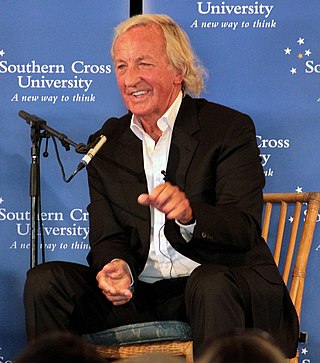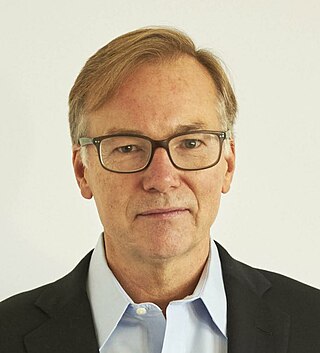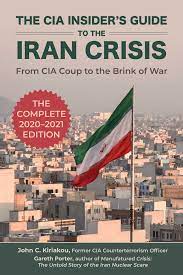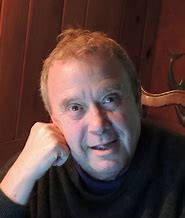
The Reagan Doctrine was stated by United States President Ronald Reagan in his State of the Union address on February 6, 1985: "We must not break faith with those who are risking their lives—on every continent from Afghanistan to Nicaragua—to defy Soviet-supported aggression and secure rights which have been ours from birth." It was a strategy implemented by the Reagan Administration to overwhelm the global influence of the Soviet Union in the late Cold War. The doctrine was a centerpiece of United States foreign policy from the early 1980s until the end of the Cold War in 1991.

John Richard Pilger is an Australian journalist, writer, scholar, and documentary filmmaker. He has mainly been based in Britain since 1962. He was also once visiting professor at Cornell University in New York.

Wilfred Graham Burchett was an Australian journalist known for being the first western journalist to report from Hiroshima after the dropping of the atomic bomb, and for his reporting from "the other side" during the wars in Korea and Vietnam.

Seymour Myron "Sy" Hersh is an American investigative journalist and political writer. He gained recognition in 1969 for exposing the My Lai massacre and its cover-up during the Vietnam War, for which he received the 1970 Pulitzer Prize for International Reporting. During the 1970s, Hersh covered the Watergate scandal for The New York Times, also reporting on the secret U.S. bombing of Cambodia and the CIA's program of domestic spying. In 2004, he detailed the U.S. military's torture and abuse of prisoners at Abu Ghraib in Iraq for The New Yorker. Hersh has won a record five George Polk Awards, and two National Magazine Awards. He is the author of 11 books, including The Price of Power: Kissinger in the Nixon White House (1983), an account of the career of Henry Kissinger which won the National Book Critics Circle Award.
Pacific News Service (PNS) was an American nonprofit alternative news media organization. PNS ceased operations in 2017.
Edward Samuel Herman was an American economist, media scholar and social critic. Herman is known for his media criticism, in particular the propaganda model hypothesis he developed with Noam Chomsky, a frequent co-writer. He held an appointment as Professor Emeritus of finance at the Wharton School of Business of the University of Pennsylvania. He also taught at Annenberg School for Communication at the University of Pennsylvania.

Félix Ismael Rodríguez Mendigutia is a Cuban American former Central Intelligence Agency Paramilitary Operations Officer in the Special Activities Division, known for his involvement in the Bay of Pigs Invasion and the execution of communist revolutionary Che Guevara as well as his ties to George H. W. Bush during the Iran–Contra affair.

William Henry Blum was an American historian and a critic of United States foreign policy.

Robert David Kaplan is an American author. His books are on politics, primarily foreign affairs, and travel. His work over three decades has appeared in The Atlantic, The Washington Post, The New York Times, The New Republic, The National Interest, Foreign Affairs and The Wall Street Journal, among other newspapers and publications.

Steve Coll is an American journalist, academic and executive.
Nayan Chanda is the founder and editor-in-chief of YaleGlobal Online, an online magazine that publishes articles about globalisation. The magazine launched in 2001. Control of the magazine was transferred in 2013 from the Yale Center for the Study of Globalization to the Whitney and Betty MacMillan Center for International and Area Studies at Yale.

Peter Dale Scott is a Canadian-born poet, academic, and former diplomat. A son of the Canadian poet and constitutional lawyer F. R. Scott and painter Marian Dale Scott, he is best known for his critiques of deep politics and American foreign policy since the era of the Vietnam War. Notably, he was a signatory in 1968 of the "Writers and Editors War Tax Protest" pledge, in which participants vowed to refuse tax payments in protest against the Vietnam War. Although trained as a political scientist, Scott holds an atypical academic appointment as a poet-scholar in an English department.

Gareth Porter is an American historian, investigative journalist, author and policy analyst specializing in U.S. national security issues. He was an anti-war activist during the Vietnam War and has written about the potential for peaceful conflict resolution in Southeast Asia and the Middle East. In the late 1970s Porter was a defender of the Khmer Rouge (KR) against charges that the KR was pursuing genocidal policies against the Cambodian people. Porter's books include Perils of Dominance: Imbalance of Power and the Road to War in Vietnam (2005), his explanation of the United States involvement in the Vietnam War.
The CIA conducted secret operations in Cambodia and Laos for eight years as part of the conflict against Communist North Vietnam.
François Sully (1927–1971) was a French journalist and photographer best known for his work during the Vietnam War. Sully was one of the earliest journalists to cover the Vietnam War and spent 24 years in Indochina. At the time of his death in a command helicopter crash near the Cambodian border, he was viewed as the dean of the Saigon press corps.
Year Zero: The Silent Death of Cambodia is a 1979 British television documentary film written and presented by the Australian journalist John Pilger, which was produced and directed by David Munro for the ITV network by Associated Television (ATV). First broadcast on 30 October 1979, the filmmakers had entered Cambodia in the wake of the overthrow of the Pol Pot regime.
The United Front for the Liberation of Oppressed Races waged a nearly three decade long insurgency against the governments of North and South Vietnam, and later the unified Socialist Republic of Vietnam. The FULRO insurgents represented the interests of indigenous Muslim and Hindu Cham, Montagnards, and Buddhist Khmer Krom against the ethnic Kinh Vietnamese. They were supported and equipped by China and Cambodia according to those countries' interests in the Indochina Wars.
Hugh David Scott Greenway is an American journalist who has worked as a foreign affairs correspondent for Time Life, The Washington Post, and The Boston Globe. Greenway has covered conflicts in Vietnam, Laos, Cambodia, Afghanistan, Lebanon, Iraq, Pakistan, Burma, El Salvador, Nicaragua, Bosnia, and Croatia. His writing has also appeared in The New York Times, The New Yorker, The New York Review of Books, The Atlantic, the Columbia Journalism Review, and la Repubblica. Greenway is currently a columnist for Foreign Affairs and a member of the Council on Foreign Relations.
Ronald Bruce St. John, also known as R. Bruce St. John, is an American historian and writer on international relations, an affiliate professor of Bradley University.

The CIA Insider's Guide to the Iran Crisis: From CIA Coup to the Brink of War is a non-fiction book by former US Central Intelligence Agency (CIA) Officer John Kiriakou and investigative journalist and historian Gareth Porter about America's behavior and actions during four decades with Iran. The book was published by Simon & Schuster publishing on February 4, 2020.











